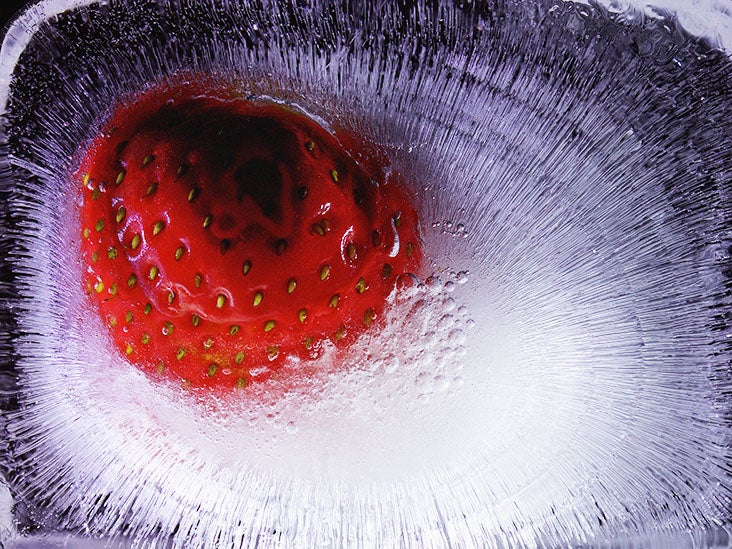
- Berries, in general, are considered a superfood with many health benefits.
- Past studies have shown that berries help ease inflammation and help protect certain areas of the body, such as the gut microbiome and cardiovascular system.
- San Diego State University researchers say eating an equivalent of two servings of strawberries daily can help improve cognitive function, lower blood pressure, and increase a person’s antioxidant capacity.
Generally speaking, berries are considered a superfood. That is because all berries — including acai berries, blueberries, blackberries, and raspberries — provide numerous health benefits.
Previous studies have found that consuming berries can help ease inflammation and oxidative stress, which can be triggers for many diseases.
Other studies have linked berry consumption to benefitting and protecting certain areas of the body, including the gut microbiota, nervous system, cardiovascular system, and immune system.
Now, new research from San Diego State University says eating strawberries every day can help improve cognitive function, lower blood pressure, and increase a person’s antioxidant capacity.
The research was recently presented at NUTRITION 2023, the annual meeting of the American Society of Nutrition, and was funded by the California Strawberry Commission.
26 grams or 2 servings of strawberries
Dr. Shirin Hooshmand, a professor in the School of Exercise and Nutrition Sciences at San Diego State University and principal investigator on the study, told Medical News Today that the idea for this study came from previous research.
“Prior to conducting our clinical study some of the similar effects were shown in animal studies and some human studies, but (in) different populations and using different study designs,” she explained.
For this study, Dr. Hooshmand and her team conducted a study with 35 healthy men and women between the ages of 66 and 78. Over an eight-week period, each day, study participants either consumed 26 grams of freeze-dried strawberry powder — equivalent to two servings of fresh strawberries — or a control powder.
At the end of the eight weeks, researchers found those who ate the strawberries increased their cognitive processing speed by 5.2%, lowered their systolic blood pressure by 3.6%, and increased their antioxidant capacity by 10.2% when compared to those who took the control powder.
In regards to their findings, Dr. Hooshmand said they expected to see improvement in antioxidant capacity as strawberries are a good source of vitamin C. They also expected to see some improvement in cognitive processing speed based on their hypothesis.
“Previously published research has already shown some of the acute and long-term cardiovascular health benefits of strawberries in different populations, so this is great to confirm some of those findings,” Dr. Hooshmand said when asked about the blood pressure findings.
“This study demonstrates that consuming strawberries may promote cognitive function and improve cardiovascular risk factors like hypertension. We’re encouraged that a simple dietary change, like adding strawberries to the daily diet, may improve these outcomes in older adults.”
— Dr. Shirin Hooshmand
What makes strawberries so healthy?
Strawberries (genus Fragaria) were first grown in gardens in France in the late 18th century. However, they could be found in the wild as far back as Roman times.
Today, strawberries are grown in many parts of the world, with most production occurring in the United States, Turkey, and Spain.
Interestingly, although strawberries are considered a “berry,” they are technically an accessory or aggregate fruit because of how they grow.
Strawberries contain many vitamins and minerals the body needs to stay healthy, including vitamin A, magnesium, potassium, and folate (vitamin B9).
Additionally, strawberries are very high in vitamin C — eating just eight strawberries provides the body with its daily vitamin C intake.
And strawberries are known to have a large amount of antioxidants, including polyphenols and phytosterols. Polyphenols have antioxidant and anti-inflammatory properties, and phytosterols aid in lowering cholesterol levels.
Previous research has linked strawberry consumption to lowered risk for heart disease, diabetes, Alzheimer’s disease, and even potentially help prevent cancer.
More to research about strawberries
When asked about the plan for the next steps in this research, Dr. Hooshmand said it would depend on acquiring future funding.
“But we have many great ideas for future studies to follow up on some of our current findings — stay tuned! Additionally, we are currently studying the impacts of strawberries on similar and other outcomes as part of a multi-fruit intervention,” she continued.
After reviewing this research, Allison Tallman, a registered dietitian and founder of Nourished Routes, who was not involved in the study, told Medical News Today what she would like to see further in strawberry-related health research.
“The link between strawberries and gut health, strawberries and brain health, and strawberries and heart health have been well explored. I’d love there to be more research on strawberries and cancer prevention since they do have antioxidant components,” she said.
What is the healthiest way to eat strawberries?
Experts recommend that most adults eat 1 1/2 to 2 cups of fruit each day. About eight large strawberries are equal to one cup of fruit.
Looking for new ways to incorporate more strawberries into your diet? Consider these suggestions from Tallman:
- Start your day off by adding strawberries to a protein-packed smoothie
- Add strawberries to your lunch by placing them on top of a spinach salad or on a grain bowl
- Strawberries make a great addition to yogurt parfaits
- Lastly, strawberries are delicious to eat as is!
And for more ideas, the U.S. Department of Agriculture’s MyPlate program offers a variety of healthy recipes highlighting strawberries, including:
- Broccoli Strawberry Orzo Salad
- Pear Kebabs with Strawberry Dipping Sauce
- Fruit and Yogurt Breakfast Shake
- Fabulous Fruit Muffins
- Fruit Salsa
- Fruit Pizza
Source: Read Full Article
